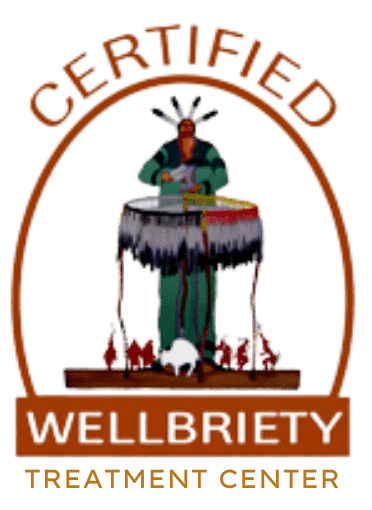When people talk about creating boundaries within their relationships, what exactly does that mean? Often, people incorrectly associate boundaries as mental and emotional blocks that keep a person from expressing themselves fully— that’s not a boundary, that’s a barrier. Boundaries enable healthy, long-lasting relationships.
Boundaries are paramount to recovery because they help you create a healthy space between yourself and other people through mutual respect and caution. Giving your mind and body the room it needs to recover from your addiction protects you from being taken advantage of during an emotionally vulnerable period in your life.
What is a Boundary
A boundary is the end-point of your emotional and physical allowance for personal interactions. This definitive set of limits for your mind and body shields you from harm— if someone crosses these limitations, you will be negatively affected. For instance, you find handshakes acceptable with coworkers, but bear-hugs are past the point of acceptable work-place behavior. One of your officemates enjoys giving hugs as a form of greeting, but you express that hugging crosses a line, so that person respects your boundaries and only shakes your hand.
Generally speaking, boundaries are self-imposed protections originating from past emotional, verbal, or physical abuse. Emotional and physical distance maintains healthy relationships that never veer toward detachment or codependence. Boundaries require respect and provide independence and freedom in relationships. Recovery relies on boundaries because the early stages of sobriety depend on the love and respect of your support systems.
Respect in Recovery
Autonomy, personal independence, is critical to a healthy life. If one person in a relationship attempts to eliminate the other party’s individuality— disrespecting views that oppose their own or ridiculing someone for acting of their own volition— they’re looking to control, not to care for. There is no space for control in a healthy relationship, regardless of circumstance. People in recovery regularly endure misplaced judgment and cruelty from uneducated and unsympathetic people. On top of that, family members can become obsessive and controlling in a misguided attempt to fix or erase your addiction.
It is important to remember that not every denial of boundaries is as overt in its manipulation. For instance, you’re a recovering alcoholic describing your constant battle with the temptation of drinking to a friend. As a result, you need alcohol to be absent from your social circle to limit the risk of relapse. Instead of respecting your wishes, your friend ambushes you with a surprise party brimming with booze. In this case, your friend knowingly caused you mental distress in direct defiance of your request. Under these circumstances, it’s necessary to emphasize the importance of your boundaries and explain how their actions affect you.
Relapse Warning signs
Stress smolders in the mind of a recovering addict– it stokes the fire of cravings and temptation. People in early recovery require relationships based on stability and support. If a newly sober person enters into an abusive relationship after treatment, the odds of relapse are incredibly high. In other words, replacing the caring and controlled environment of a treatment center with a destructive atmosphere results in the person reverting to old, addictive habits to self-soothe. For this reason, those recovering from substance abuse must proceed with caution while navigating relationships.
Boundary-breaking in relationships results in resentment. The boundary-breaker sees nothing wrong with their actions and is angered by the inconvenience of boundaries. Likewise, the boundary-maker holds a grudge over the neglect and feels like a victim. Once you identify as the victim, you act defensive and paranoid, preparing for future violations. Afterward, it’s common for victims of abuse to seek out methods of escape, which lead to unhealthy coping mechanisms. To combat this mentality, you must process and express your resentment.
If you ever find yourself disassociating (mentally removed) to escape from a stressful situation caused by your partner, they’re hurting you. Therefore, when a partner violates you and your reaction is to dismiss the pain (“Ignore it. It will be over soon” or “It doesn’t matter”), you’re distancing yourself from emotion to avoid the pain they’re inflicting. Consequently, your partner’s cruelty will escalate until they trigger your relapse. Avoidance never solves the underlying issues in a relationship. Asserting yourself can seem scary, but it’s necessary to discourage bad behavior and introduce healthy relationship habits.
Ways to Ensure Boundaries
Boundaries go both ways in healthy relationships— you and your companion have boundaries that need to be respected. For this reason, it’s helpful to perform healthy behaviors that strengthen mutual consideration and boundary-honor.
Healthy Relationship Habits:
- Prioritize health + sobriety
- Cultivate trust + honesty
- Acknowledge and work on insecurities
- Accept that rejection is a part of life
- Grow beyond the need for approval
- Encourage vulnerability + intimacy
- Discourage codependency + detachment
- Improve self-esteem
- Overcome fear + shame
- Enlist assertive behavior
- Admit responsibility
- Deny victimization
- Learn from past mistakes
- Promote acceptance
- Differentiate between forgiving and forgetting
- Discard resentment
- Replace confrontation with discussion
- Remove temptation
- Refuse manipulation
- Develop self-control
- Create relationship goals
In order to ensure your boundaries are maintained, it’s crucial to implement these healthy relationship habits. In fact, these habits improve the relationship you have with yourself, allowing for endless personal growth. Mastering these techniques takes time and patience but the resulting positivity will enhance your recovery and relationships.
It is important to note that not all relationships are created equal. Not all relationships are worth saving– or even possible to save. If you are feeling trapped, isolated, or controlled, you should leave the relationship. If you’re on the verge of relapsing due to your partner’s behavior, you should remove yourself and find help. Your safety, sobriety, and mental health will always be more important than any relationship.
If you or a loved one is struggling with substance abuse, please reach out to us at Royal Life Centers.















